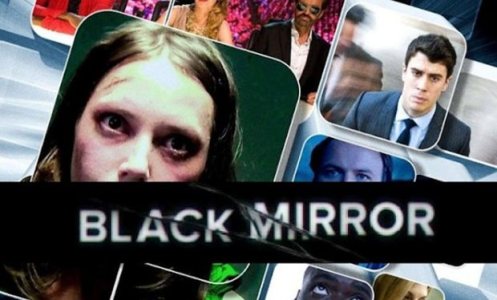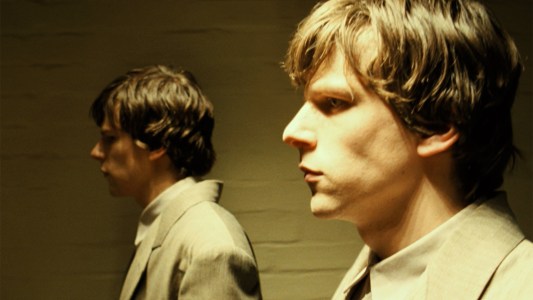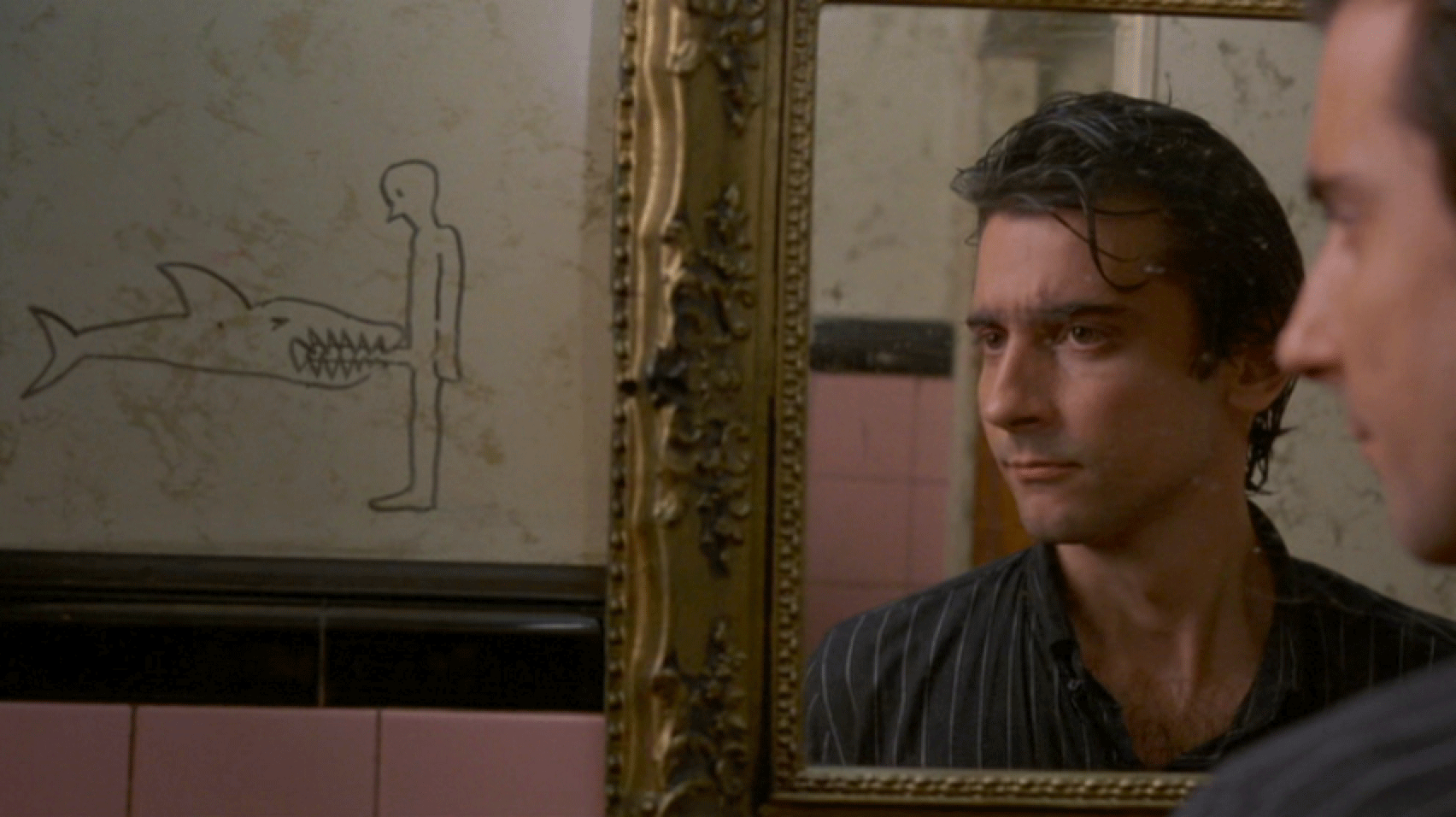Now that it’s well and truly the time in which we should all be merry making, frolicking in the non-existent snow and eating our weight in preserved fruit-based pies, what better moment to think about black comedy? Whilst we all enjoy the better parts of the festive season, it’s ok to admit defeat from time to time, blow your fuse and take part in a little anti-social satire. Black comedy is a very tricky thing indeed; lean too far into the comedy and you’ve lost your audience, dive down too deep into the dark stuff and you leave them feeling bleak and helpless. A true black comedy has the ability to make us feel both joy and despair at the same time, to laugh at the fate of the poor schmuck on screen whilst simultaneously cowering in recognition of our own failures.
 Whilst black comedy and satire used to be a thing only for the very cynical, it has quickly migrated into something a lot more popular. With the intense popularity of ridiculous reality shows and intensification of consumerism, we all seem to have become a lot more savvy to the ridiculousness of the types of lives the media wants us to emulate. Whilst the stars of such programmes cheekily assure us that they are somehow in on the joke (whatever joke that might be), many viewers have turned to other, more cynically minded fare for entertainment.
Whilst black comedy and satire used to be a thing only for the very cynical, it has quickly migrated into something a lot more popular. With the intense popularity of ridiculous reality shows and intensification of consumerism, we all seem to have become a lot more savvy to the ridiculousness of the types of lives the media wants us to emulate. Whilst the stars of such programmes cheekily assure us that they are somehow in on the joke (whatever joke that might be), many viewers have turned to other, more cynically minded fare for entertainment.
The Christmas release of the new episode in Charlie Brooker’s lauded Black Mirror series marks a shift in our viewing habits. Previously filled with festive (albeit tired) fare, the Christmas television slot has now become something else and the inclusion of Black Mirror in the scheduling list certainly hints that more changes are to come. Whilst Black Mirror edges on the blacker side than comedy, its predominantly technology-wary content certainly has its more amusing moments. Highlighting our reliance on technology to live our lives, Brooker hones in on our passivity to real situations and our potential inability to think for ourselves. The fact that Brooker uses the media in which to tell us this is somewhat ironic and the fact that he could be seen as merely forcing a different type of passive thinking down our throats does undermine his purpose a little. However, you can’t argue with facts and it seems that, where Black Mirror is concerned, our eyes are just beginning to open to the transformative effects of the black comedy.
Ben Wheatley, on the other hand, takes a much lighter approach to the black comedy, if there could be such a thing. His 2012 release Sightseers is, in this writer’s opinion at least, one of the best black comedies out there, nailing the bleak monotony of the English holiday season down to T. Telling the story of a couple on a caravan holiday, Sightseers plots how their cross country travels (billed by the duo as an inter-country erotic journey) soon spiral out of control, culminating in the couple killing all people who annoy them. The premise is entirely ridiculous and yet, the film is a great success. Sightseers’ strength is possibly is wonderfully formed dialogue; the characters’ conversations are so mundane and petty that they could have been directly lifted from real life. Sightseers is a true black comedy if there ever was one and you get the feeling that, were you to meet its kind in real life, it would stare you down until you were but a quivering mess. Proof that everyone needs Rennie – even killers – Sightseers is a must watch for the socially fed up.
 Appearing a little down the satirical scale – but not scrimping on quality – is Richard Ayoade’s The Double, a cinematic reimagining of Dostoevsky’s novella of the same name. The Double, as its title would suggest, follows a down and out factory worker who comes face to face with his exact body double. The only snagoo, however, is that no one else can tell they’re identical. Pretty soon, his double has taken over all aspects of his life, taking credit for his work, stealing his girl and eventually driving him to wrack and ruin. The Double is much more melancholic that its other counterparts, weighing a little heavier on the scale of depression. However, it is consistently funny, if you like the whole painful and inevitable downfall of a struggling man kind of thing. Ayoade does, apparently. Manifesting the blackness of the script in the film’s cinematography, The Double looks every bit as dark as it seems. Achingly irritating, deeply upsetting and retrospectively comedic, The Double is a film with its eyebrow very much raised.
Appearing a little down the satirical scale – but not scrimping on quality – is Richard Ayoade’s The Double, a cinematic reimagining of Dostoevsky’s novella of the same name. The Double, as its title would suggest, follows a down and out factory worker who comes face to face with his exact body double. The only snagoo, however, is that no one else can tell they’re identical. Pretty soon, his double has taken over all aspects of his life, taking credit for his work, stealing his girl and eventually driving him to wrack and ruin. The Double is much more melancholic that its other counterparts, weighing a little heavier on the scale of depression. However, it is consistently funny, if you like the whole painful and inevitable downfall of a struggling man kind of thing. Ayoade does, apparently. Manifesting the blackness of the script in the film’s cinematography, The Double looks every bit as dark as it seems. Achingly irritating, deeply upsetting and retrospectively comedic, The Double is a film with its eyebrow very much raised.
On the note of painfully doomed central character, Martin Scorsese’s After Hours is also a serious contender. Plotting the night from hell, After Hours’ central character sure gets a beating from Scorsese, subject to bad situation after bad situation, only to find his way back to work in the morning. After Hours is something of a modern day Myth of Sisyphus: No matter how hard Paul Hackett tries, he seems to find himself right back where he started – much worse off, of course. I implore anyone to watch After Hours without crying repeatedly “what are the chances?!” I mean really, Scorsese. Certainly scoring higher up on the comedy scale than any of the other entries, After Hours is a great introduction to the black comedy, easing its viewers in gently to things a little more dark.
It seems that the black comedy is here, defiantly. With recent satirical vampire release What We Do in the Shadows receiving a multitude of glowing reviews, it appears that cinematic critics are very much behind the move to the dark side and audiences are only championing it. If current film and TV is anything to by, this Christmas is going to be the darkest of them all. And we can’t wait to watch it all go belly up.

